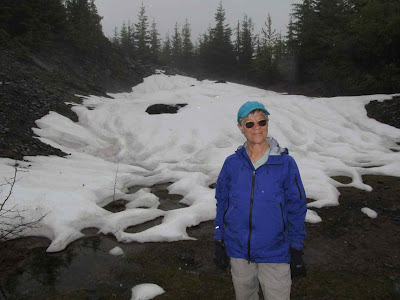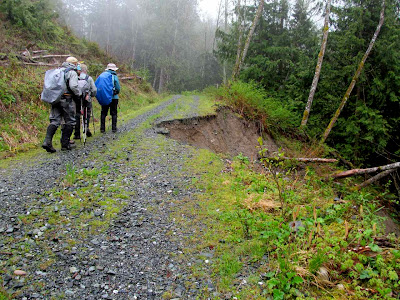But first, just a short aside about the rain, which returned with a vengeance after more than two dry weeks. I was actually looking forward to a bit of a sprinkle since it had been so long, but this very wet system we've been experiencing is a bit over the top. We've had more than an inch in the last three days, and it's still raining. I'm ready for a change.
However, the wet weather kept me inside all day Sunday, and I've just finished a very interesting book I checked out from the library. Last month I got interested in some books by Steven Pinker on how the mind works, and I wrote a post about his book back in April, entitled, "
How the mind works." I found Pinker's book to be a bit on the dense side, but I read it all the way through and gained quite a bit of insight. My sister Norma Jean got me started down that path, and then a couple of weeks ago I visited the Village Bookstore, one of my favorite places to spend time (and money). I saw that a guy named Jonah Lehrer had a book marked #1 on the bestseller list. And it had such an interesting title: "
Imagine." I perused the book with interest, but when I saw the price I put it back on the shelf, not before noticing that the author looks like a teenager! His website is very interesting and provocative, which has all kinds of links.
Check it out if you're interested in this guy, who was indeed born in 1981! He IS a kid, almost. But he's also been a Rhodes Scholar and writes his own blog fittingly entitled
The Frontal Cortex for Wired Magazine.
Now to the one I just finished. Lehrer wrote another book in 2009 called "
How We Decide," which I checked out of the library to tide me over until his new book comes out in paperback. Lehrer is no Pinker: it was hard for me to put down. It depicts scenarios that had me reading stuff out loud to Smart Guy, and I was able to peer into the decision-making processes he illustrates so very well. One that really got me is the story of Al Haynes, the pilot of the United flight in 1989 that lost all three hydraulic lines and basically gave him no control over the DC-10. He tells the harrowing story of how Haynes had to find a way to pilot the plane. He did so, coming up with ideas that had never before been conceived, and although he had no way to slow the plane down as it came in for a landing at the Sioux City airport, most of the passengers and crew survived. The training center commissioned numerous pilots to see if they could land a plane without any hydraulics. Here's an excerpt from p. 132:
The training center used a flight simulator that was programmed with the precise conditions faced by the United crew on that July day.... The pilots training to land the DC-10 in the simulator failed to make the runway on their first fifty-seven attempts.
And they were already familiar with the accident and what the pilot did! Just realizing how Haynes made his decisions not only fascinated me, but made me realize that we can do a whole lot with our minds that we never take advantage of. Suffice it to say, I'm glad I read the book and hope that some of you will read it, too. At the end of the book, Lehrer says (p. 250),
Of course, even the most attentive and self-aware minds will still make mistakes.... But the best decision-makers don't despair. Instead, they become students of error, determined to learn from what went wrong. They think about what they could have done differently so that the next time their neurons will know what to do.This is the most astonishing thing about the human brain: it can always improve itself. Tomorrow, we can make better decisions.
I find all that to be extremely uplifting. And I did find Lehrer's new book at Costco for half price, so I bought it. Onward and upward!
:-)


















































